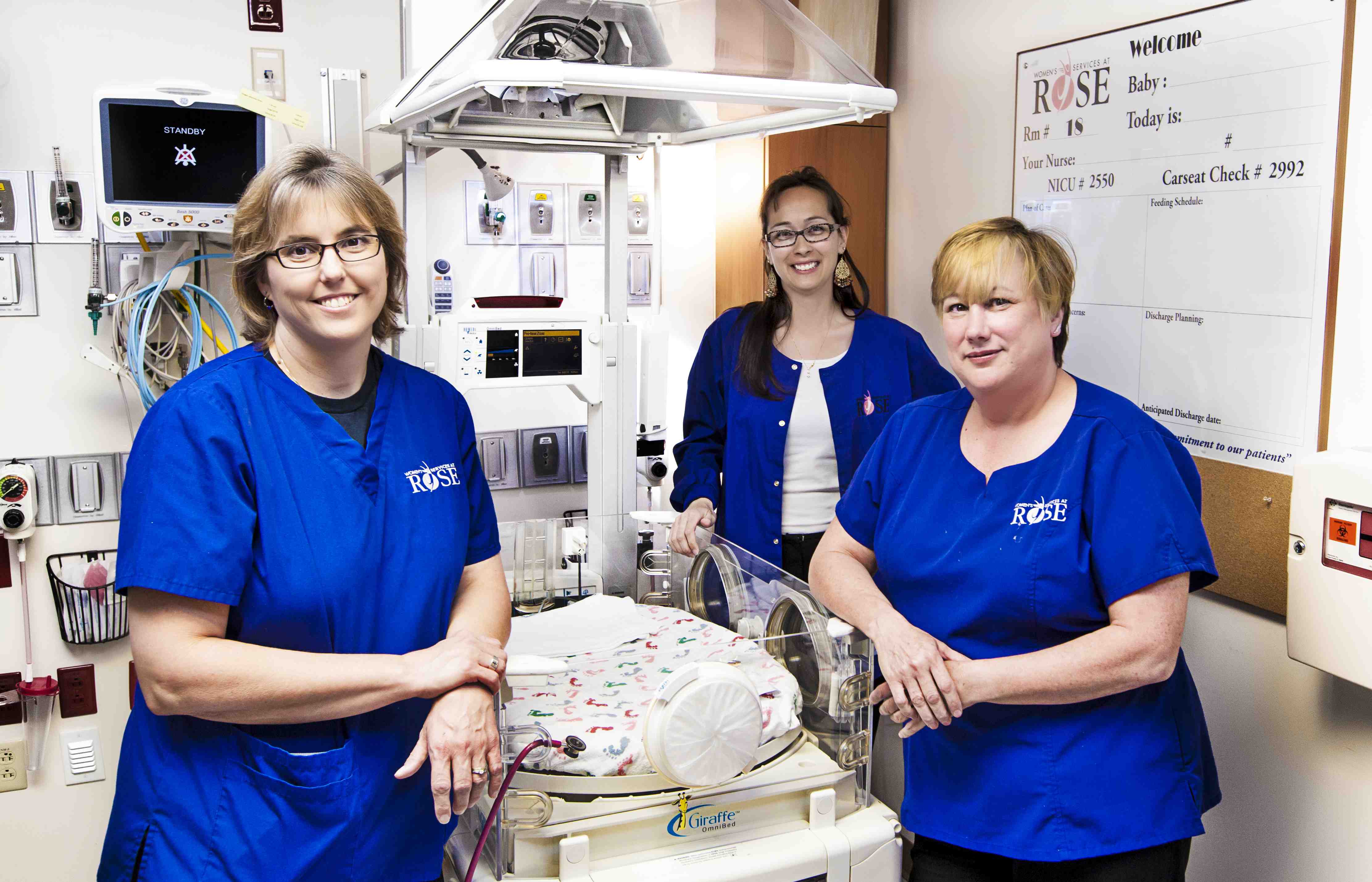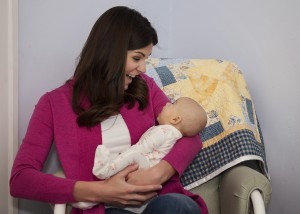Kangaroo Care Benefits Bonding in the NICU | by

Kangaroo Care enriches outcomes for Rose babies, families
Sanela Adrovic was scared when nurses placed her newborn baby on her chest seconds after his birth. He looked tiny and fragile, just topping 3 pounds, as his unexpected arrival came 11 weeks too soon. Still, Adrovic did what any mother would do to welcome her child into the world: “I hug him,” the Bosnia native says, in her slightly choppy English. But little did she know, that simple, loving act signaled a course that lay ahead for weeks to come.
As baby Riad struggled for his life in Rose Medical Center’s Neonatal Intensive Care Unit for the next eight weeks, Adrovic used the power of a mother’s touch to help him heal and grow. Thanks to increasing evidence of its many benefits, and the efforts of three Rose nurses who took it upon themselves to encourage its use in the NICU, a practice called Kangaroo Care became Adrovic’s main focus throughout her baby’s hospital stay.
NICU parents often feel helpless, wanting to care for their new babies as nature intended, but isolated by the plastic incubators and wired equipment that is a preemie baby’s world. Kangaroo Care, which dads can do, too, helps them be a part of their little ones’ care, says NICU nurse Tammy Hendrix, who launched “Roo in the NICU” with fellow nurses Tracy Anderson and Tammy Yoho after reviewing the research as part of a master’s thesis.
Filling a need
“It made you full, like you wanted to burst, when he touched your skin,” says Adrovic, a Denver resident. “I told them: You are giving me something to do, which in my right mind, I should be doing.” For Adrovic, whose native country forbids parents in the NICU, allowing them only to peer at their babies through a wall of glass sometimes for months, the experience was particularly profound.
With Kangaroo Care, or KC, preemies clad only in diapers are placed on their mother’s bare chest and tucked inside a blanket, like a baby kangaroo in its pouch. “It was the most incredible feeling to have our son back where I felt he belonged,” says Julie Gladnick, another NICU Rose mother, whose son, Owen, was born at 29 weeks weighing 3 pounds, 2 ounces. “Holding Owen skin-to-skin was the most peaceful part of my world for many, many weeks,” says Gladnick, of Denver. “It was like a piece of heaven in an otherwise chaotic world.”
KC encourages that love and bonding between parent and child, which, in itself, can play a role in a child’s development, research shows. But the benefits to baby go well beyond bonding, Hendrix says.
Nature’s incubator
Although it might seem small, one of the biggest benefits KC offers preemies is a calm, warm place to rest. And when life’s goal is simply to remain healthy and grow, that’s huge, Hendrix says. “Their breathing becomes much more regular. They have much less apnea (halted breathing) and bradycardia (overly low heart rate),” she says, citing two common problems with preemies. Also, with no fat, preemies can’t regulate their temperature, which, when on her chest, their mothers do for them, automatically adjusting the babies’ temperature in a way no incubator can do.
With Riad, Adrovic would hold him as many hours a day as possible, especially when he appeared stressed. “I would put him on me. His breathing changed. You could see how calm he would get,” she says, adding that she’d touch him gently and speak quietly. “I tell him he was going to be good,” she says, pausing to fight back tears. “That he was going to grow into big baby,” she says.
By keeping them stable and relaxed, KC allows babies to sleep deeply and heal and grow, says Hendrix, whose research revealed that NICU babies without KC rarely achieve restful sleep (which averages 22 hours in utero), and tend to have sleep issues for life. KC babies do grow faster, leading to earlier hospital release, studies show.
Nature’s medicine
When placing babies on their mother’s skin, they will also naturally root for and latch onto the breast, often nursing within two hours of Kangaroo Care, research shows. Having the antibodies of their mother’s milk is even more crucial for preemies, who are more prone to infection, and a preemie’s mother’s milk is also higher in protein, sodium, calcium and calories than term mothers’ milk, Hendrix says.
Studies also show KC increases milk supply, something Adrovic noticed. “When I kangarooed, I could feel more milk coming to me,” she says. “Soon he was nursing really nicely.” KC also doubles rates of successful breastfeeding and increases nursing duration, Hendrix says.
Both baby Owen and baby Riad have grown steadily since their NICU releases, with Riad nearing 20 pounds at 10 months and Owen closing in on 7 pounds at 9 weeks. Both boys were receiving thumbs up from all of their doctors, including pulmonologists, neurologists and pediatricians. “There’s no sign of trouble so far,” Adrovic says. Was it because of KC? “Nobody knows,” she says. It could have been that; it could have been the high level of care from both her and the staff, Adrovic says. “And it could have been my prayers.”
Regardless, she feels blessed to have her “miracle baby” and to have had the opportunity to offer KC in the NICU. “If they allowed me to do this much for my baby, if they say that this thing can help so much, why wouldn’t I try it? I think kangarooing is the best thing for the premature babies, or any babies. I believe mom can heal everything.”
(learn more) http://www.healthonecares.com/womens-health-center/pregnancy-center/
Call a HealthONE representative to answer your questions and find a physician, 303-575-0055
Leave a Comment
Please be respectful while leaving comments. All comments are subject to removal by the moderator.


